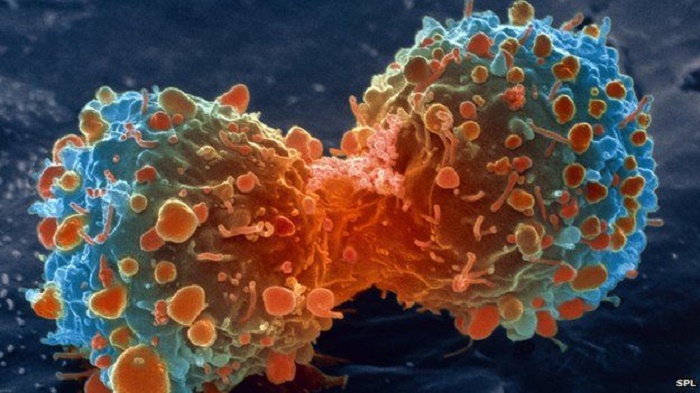5 Reasons Why The Future Looks Bright For Humans And Bleak For Cancer

Here`s a look at five reasons to be hopeful about the future of cancer care.
1. Precision Medicine: It`s Happening
Precision medicine is the vision that one day, all people will have access to customized care, with treatments that match the genomic profile and disease history of their cancer. These individualized therapies promise to be more effective than conventional treatments and result in fewer side effects.
Many people with cancer will soon have access to dramatically improved treatment options, employing targeted therapies that reverse the effect of specific gene mutations in their tumor cells. Such drugs are not yet available for most cancer patients. But when they can be used -- in the right person with the right type of cancer -- their benefit can be decisive.
Our scientists are working relentlessly to extend the promise of precision medicine to people with all kinds of cancer.
2. Immunotherapy: Mobilizing Armies Of White Blood Cells To Attack Cancer
Immunotherapy is the fruition of a century-old idea: that a person’s own immune system can be stimulated to fight cancer. Today, breakthroughs in this field are coming with incredible speed.
MSK researchers have played a major role in the development of injectable drugs that boost the cancer-fighting powers of the immune system`s T cells by blocking certain receptor molecules on the cells` surface. These therapies have produced remarkable results, eliminating cancer completely in some patients with melanoma.
Immunotherapy doesn’t work for everyone, but scientists hope this approach will eventually become widely useful. Recent MSK research has yielded important clues about how immunotherapy drugs work and how they could be improved.
3. Cell-Based Therapy: `Living Drugs` Are No Longer Science Fiction
Our researchers are developing a different immunotherapy strategy in which a patient`s own T cells are directly manipulated to more readily attack cancer cells. In this treatment, called CAR therapy, T cells are collected from a patient`s blood, genetically engineered to more effectively recognize and target tumors, and then loaded back into the patient`s bloodstream.
This approach of using "living drugs" -- therapies in which live cells are either infused or transplanted into patients -- is showing early promise for fighting certain blood cancers, and might potentially be useful for treating solid tumors, as well.
4. Epigenetic Therapy: Setting Cancer Cells Straight
Throughout the history of medicine, doctors have searched for ways to control cancer by cutting tumors out or poisoning them with chemicals and radiation. But what if cancer could be treated in a different way, by transforming malignant cells back to normal rather than destroying them?
Research into epigenetics -- an intricate system of biochemical adjustments cells make to regulate genes -- is changing our understanding of cancer. It has led to the development of a number of new drugs that target epigenetic enzymes, which regulate a cell`s genetic programming. Instead of killing cancer cells, these therapies seek to set the cells on a path back toward normal growth and function.
These new drugs have shown early promise in clinical trials at MSK evaluating their effectiveness in people with acute myeloid leukemia and myelodysplastic syndromes.
5. Research Into Metastasis: Unmasking The Latent Enemy
For almost 200 years, scientists have been toiling to understand metastasis, the process that allows some cancer cells to break away from their tumor of origin and take root in a different tissue. Today the problem is as urgent as ever: metastasis is responsible for nine out of 10 deaths from cancer.
The process has been challenging to study, let alone to control. Metastatic tumor cells are rare in the body compared with the millions of tumor cells that don`t cause metastasis, and are therefore hard to detect and isolate.
But the tide is finally turning. In recent years, researchers have identified genes and pathways that commonly drive the spread of certain types of cancer to various organs. In addition, our scientists have uncovered key survival skills that metastatic tumor cells use to spread and thrive.
As the science of metastasis matures further, we are likely to see new treatment options emerge.















































